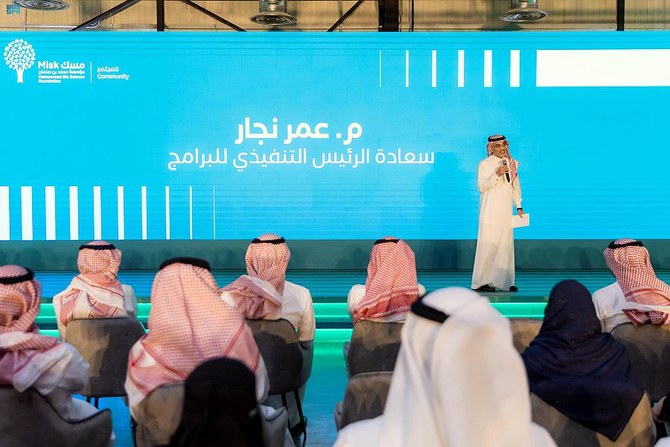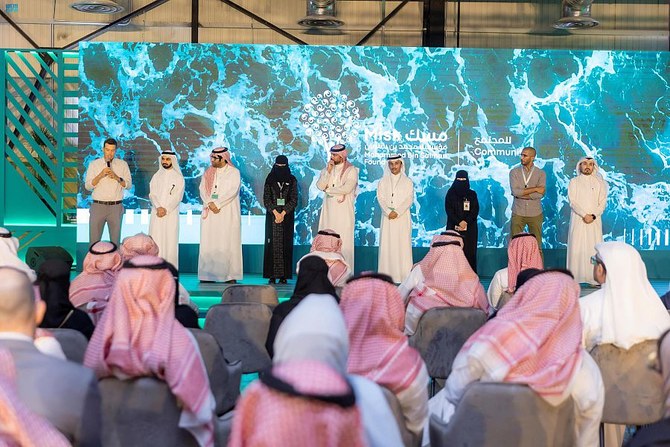RIYADH: The Mohammed bin Salman Foundation “Misk” launched the “Youth Impact Council Initiative” on Thursday.
The initiative was launched in the Prince Mohammed bin Salman Non-Profit City in Riyadh, the Saudi Press Agency reported on Friday.
The initiative is the first platform concerned with supporting the growth of youth organizations by providing an effective environment and sharing experiences and information that serves organizations in the non-profit sector.
It aims to make them more sustainable and effective, and in a way that enhances interconnection between workers in the sector and creates new opportunities to maximize the impact of quality youth organizations.
The Youth Non-Profit Organizations Initiative includes non-profit associations and institutions, experts and specialists in the non-profit, government and private sectors, volunteers in youth programs and bodies that graduated from the Youth Non-Profit Organizations Building Program of the “Misk for Community” path.
Misk also launched the Youth Non-Profit Organizations Incubator Program, which is the second batch of the Youth Non-Profit Organizations Incubator 2022 to be launched, and an opportunity for youth initiatives and newly established associations to accelerate their growth and expansion and multiply their societal impact.
Out of 226 entities participating in the program, seven initiatives and two associations will start the program for guidance and direction on Sunday, including the Digital Games Association, the Robo Tuwaiq initiative, the Wassila platform initiative, the specific community initiative, the Rawasi Youth initiative, the Saudi initiative for nanotechnology, Tarim Association, the Hijaz Bloggers Initiative, and the Theatrical Production Initiative.
The three-month program for non-profit youth organizations includes a training course on the “Misk Hub” platform, which aims to develop the services of the participating parties and build their organizational capacities, including managing development projects, human resource management, governance, financial sustainability, communication, increasing impact and measuring it.
The program concludes with a closing ceremony and a presentation event that will be held in November for all participants, to measure the impact of the program and celebrate the participants’ efforts.
All those participating in the program will give presentations for community projects that serve young people, aimed at obtaining financial support from Misk for their input.





























